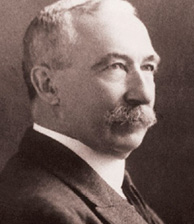
We want to share with you a summary of a great book on Regenerative Agriculture: An Agricultural Testament by Sir Albert Howard. This book covers topics such as:
- the benefits of mimicking nature and natural growing systems
- the benefits of growing multiple crops together in the same field (polycropping or interseeding)
- the paramount importance of covering the soil surface
- using microbiology to unlock fertility reserves in the soil
- the mycorrhizal association — the living fungous bridge between humus in the soil and the sap of plants.
- the role of synthetic nitrogen in increased frequency of plant disease and insect problems
- Using soil algae as nitrogen fixers
- the benefits of compost, compost tea and other sources of biological amendments
- the strong link between a healthy soil microbiology and the health of the people and animals consuming the crops grown on the soil.
We think these topics are recent, cutting-edge ideas that the “really cool” farmers started talking about only in the last few years, but that actually is not the case. These are all topics found in Sir Albert Howard’s wonderful book published in…. 1940! Before America even entered World War II, more than 80 hears ago, these ideas were being discussed, but unfortunately, most of us have been ignoring them for just as long as they have been around.
Albert Howard was “regen” before “regen” was cool and even before it was a word. He was a plant pathologist for the British government and worked in India primarily, trying to solve the problems affecting the crops there. He originally followed the practices he was taught in the university, but soon figured out that he received better results by mimicking natural systems. Howard describes how natural systems work, and how natural systems are incredibly resistant to disease while our agro-ecosystems seem so susceptible. He draws a strong link between soil humus and a healthy population of soil microbes, and a strong link between a healthy microbial population and the resistance of plants to disease. But he doesn’t stop there. He also draws a strong link between healthy soil and the health of people consuming the produce produced from that soil. Only now do scientists seem to be reconnecting those dots of information which Howard started over 80 years ago regarding soil microbiology and the ability of the crops grown in soil rich in microbial activity to prevent disease.
Since An Agricultural Testament first appeared in 1940, it has been regarded as one of the most important contributions to the field of soil rehabilitation problems ever published. In the preface Howard states: “Since the Industrial Revolution the processes of growth have been speeded up to produce the food and raw materials needed by the population and the factory. Nothing effective has been done to replace the loss of fertility involved in this vast increase in crop and animal production. The consequences have been disastrous. Agriculture has become unbalanced: the land is in revolt: diseases of all kinds are on the increase: in many parts of the world nature is removing the worn-out soil by means of erosion. The purpose of this book is to draw attention to the destruction of the earth’s capital — the soil; to indicate some of the consequences of this; and to suggest methods by which the lost fertility can be restored and maintained.”
If these 80-year-old words sound strangely familiar to you then we strongly recommend that you read An Agricultural Testament by Sir Albert Howard. You will be shocked at how many ideas we consider new and radical are just reinventions of a wheel we have ignored for nearly a century. You can find a free downloadable copy of this book at www.greencover.com and search for Agricultural Testament.
This article first appeared in the 8th Edition of Green Cover's Soil Health Resource Guide.
Also check out the 10th edition, our latest Soil Health Resource Guide, over 90 pages packed with scientific articles and fascinating stories from soil health experts, researchers, farmers, innovators, and more! All as our complimentary gift to you, a fellow soil health enthusiast!